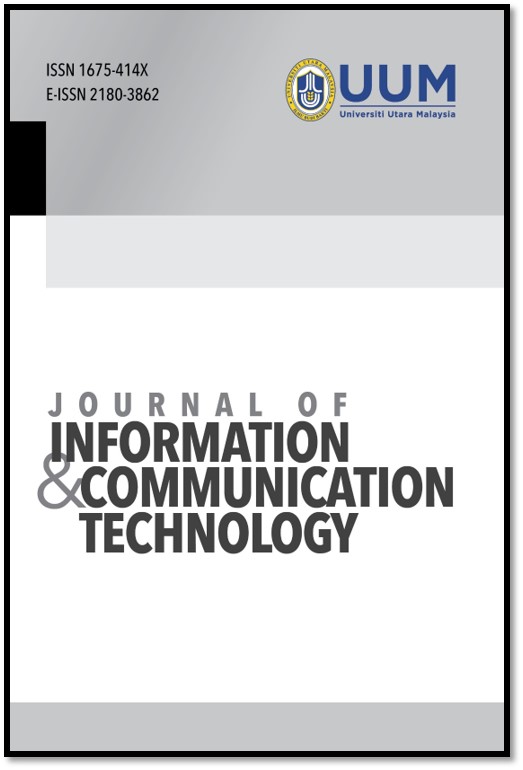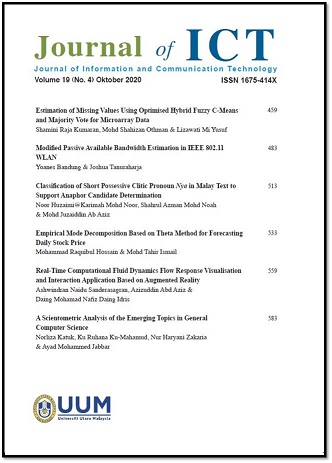Ensemble Feed-Forward Neural Network and Support Vector Machine for Prediction of Multiclass Malaria Infection
DOI:
https://doi.org/10.32890/jict2022.21.1.6Abstract
Globally, recent research are focused on developing appropriate and robust algorithms to provide a robust healthcare system that is versatile and accurate. Existing malaria models are plagued with low rate of convergence, overfitting, limited generalization due to restriction to binary cases prediction, and proneness to local minimum errors in finding reliable testing output due to complexity of features in the feature space, which is a black box in nature. This study adopted a stacking method of heterogeneous ensemble learning of ArtificialNeural Network (ANN) and Support Vector Machine (SVM) algorithms to predict multiclass, symptomatic, and climatic malaria infection. ANN produced 48.33 percent accuracy, 60.61 percent sensitivity, and 45.58 percent specificity. SVM with Gaussian kernel function gave better performance results of 85.60 percent accuracy, 84.06 percent sensitivity, and 86.09 percent specificity. Consequently, to improve prediction performance, a stacking method was introduced to ensemble SVM with ANN. The proposed ensemble malaria model was tuned on different thresholds at a threshold value of 0.60, the ensemble model gave an optimum accuracy of 99.86 percent, sensitivity 100 percent, specificity 98.68 percent, and mean square error 0.14. The ensemble model experimental results indicated that stacked multiple classifiers produced better results than a single model. This research demonstrated the efficiency of heterogeneous stacking ensemble model on effects of climatic variations on multiclass malaria infection classification. Furthermore, the model reduced complexity, overfitting, low rate of convergence, and proneness to local minimum error problems of multiclass malaria infection in comparison to previous related models.
References
Additional Files
Published
Issue
Section
License
Copyright (c) 2022 Journal of Information and Communication Technology

This work is licensed under a Creative Commons Attribution 4.0 International License.

 2002 - 2020
2002 - 2020
























